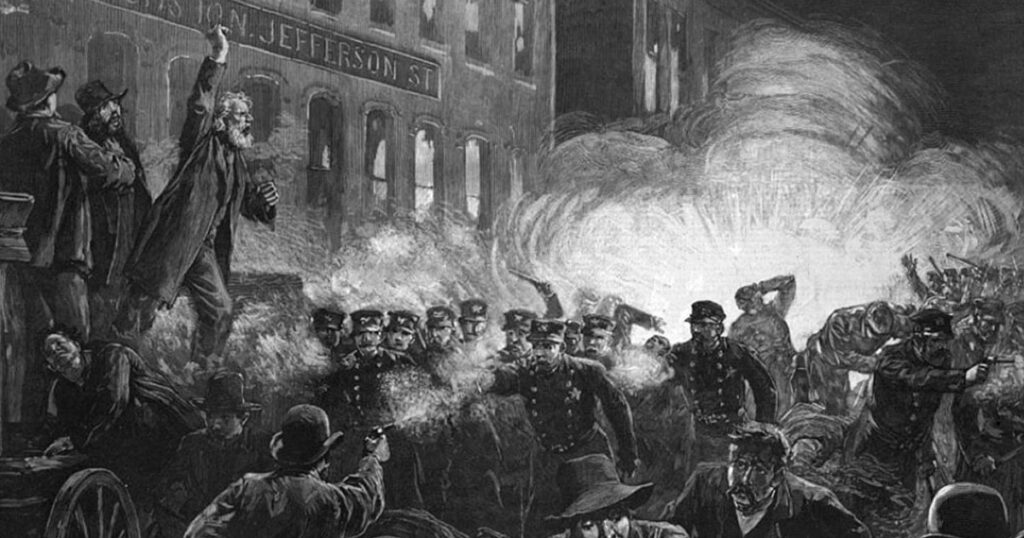
The history of the eight-hour workday is neither short nor sweet. Advances were piecemeal. In Spain in 1593, Philip II signed a royal decree establishing an eight-hour workday, making Spain the first country to regulate the workday by law. Then what happened? Nothing for a long time. But around 1810, during the Industrial Revolution in the United Kingdom, when the working day could range from 10 to 16 hours and the work week was typically six days and child labor was common, the industrialist and reformer Robert Owen called for an eight-hour workday, instituting it in his cotton mills in New Lanark, Scotland. In England, the 1833 Factory Act limited the workday for young children to eight hours and for older children to 12. A subsequent Factory Act in 1847 capped the workday at 10 hours for women and teens. French workers won the 12-hour day after the February Revolution of 1848. Following an 1889 strike, gas workers in London became the first British workers to achieve an eight-hour day. In Australia, unions negotiated an eight-hour workday for stonemasons after a successful strike in 1856.
In the United States, Philadelphia carpenters went on strike in 1791 for the 10-hour day. In 1835, workers in Philadelphia, led by Irish coal heavers, organized a general strike. By the following year, many labor leaders were calling for an eight-hour day. Boston ship carpenters got an eight-hour day in 1842. Then in 1886, American labor movements convened a general strike in favor of an eight-hour work day. At the time, American workers averaged slightly more than 60 hours in a six-day work week. The nationwide strike began on May 1. Three days later, when striking workers in Chicago confronted strikebreakers at the McCormick reaper plant, police fired on the crowd, and several people were killed. A rally in support of the workers and in protest of police action was quickly convened for the next day in Haymarket Square, where a bomb went off, killing a policeman. Again police fired on demonstrators, and in the melee, several more people were killed.
Three years later, with the eight-hour work day still the goal, the Marxist International Socialist Congress met in Paris and adopted a resolution to support working-class demands for the eight-hour day. In commemoration of the Haymarket affair, May 1 became International Workers’ Day. In much of the world, May 1 continues to be celebrated as labor day, el día del trabajador. All these tangled events explain why on this day my students have no school to attend, their teachers have no classes to teach, and their parents have no work to go to.
Eight men were accused of conspiracy in the Haymarket affair. Although only two of the eight were even present at the site that evening, all eight were convicted. Seven were sentenced to death and one to prison. Of the seven, two had their death sentences commuted to life terms in prison, one committed suicide on the eve of the execution date, and four were hanged. Their names are not lost. Histories describe the events, plaques name the men, movements celebrate them as martyrs, and holidays commemorate their place in the struggle for workers’ rights. That struggle goes on. All across Spain, people gather on this holiday in support of workers’ causes, among which is the first condition: the right to work, meaning a decent contract guaranteeing employment. Last year more than 70 demonstrations were organized. Royal decrees are still issued to appease workers, owners, and unions. It’s a hard job to balance everyone’s demands. In 1926, Henry Ford gave his workers an eight-hour day, thinking not only of their welfare but also of his own. How often, though, do interests of labor and management align for a win-win situation? But on this day of the worker, let us not think about that. Let us try to be idle and comfortable. The better to return to the messy mix of obligation, pleasure, drudgery, and satisfaction from a job well done.

